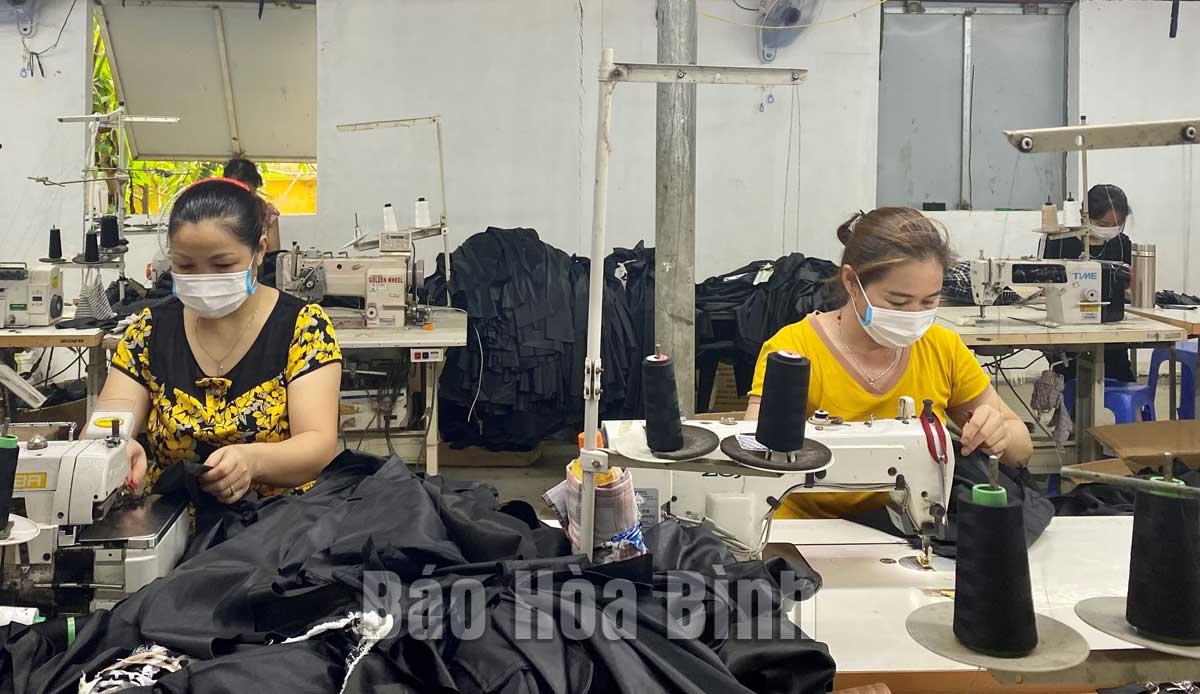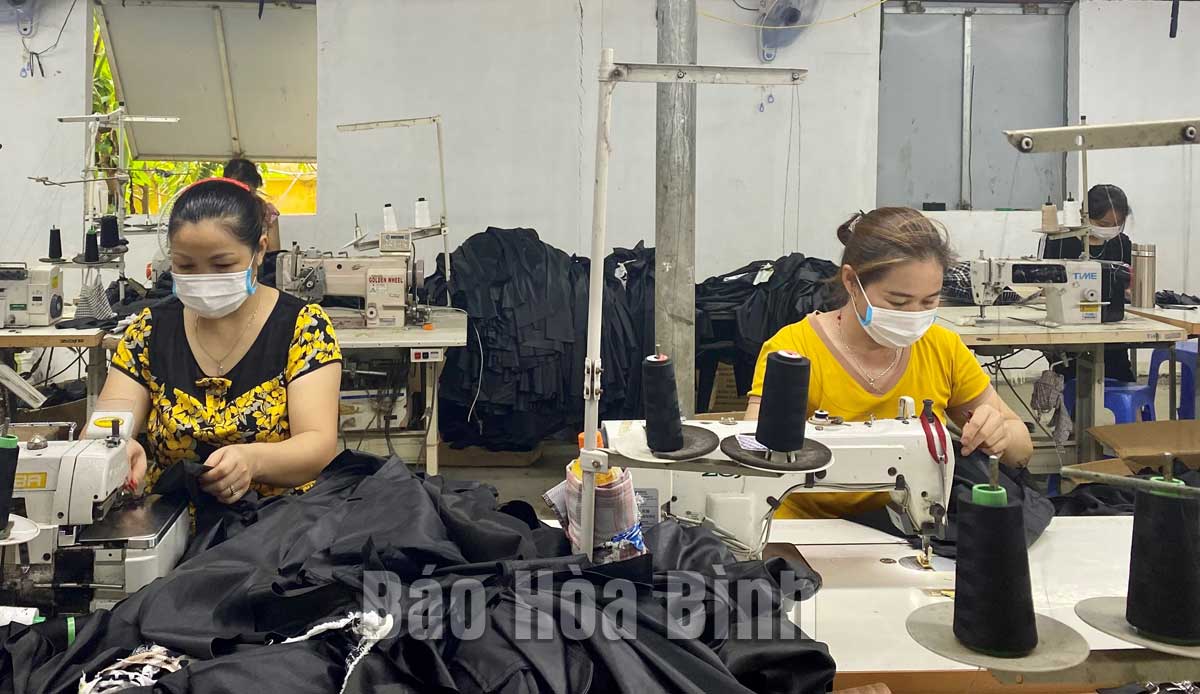
(HBO) - Hoa Binh’s Kim Boi district has taken various measures to encourage the development of the industry and handicraft sector, creating jobs and raising income for local workers.
Photo: Huy Chi general services cooperative in Hung Son (Kim Boi
district) creates jobs for about 50 local workhands.
As the district has no industrial parks, to bolster development of the sector,
local authorities focus on the transport system to facilitate transportation
and trade; step up administrative reforms; and offer consultations for new
business registration.
They also rolled out incentives to support firms and household businesses in
terms of taxes and land; as well as encouraged families and cooperatives to
develop crafts and farm produce processing on the basis of local resources.
Last year, despite the COVID-19 pandemic, firms, cooperatives and household
businesses in the district maintained operation and applied e-commerce to
expand markets, thereby creating stable jobs for many local workhands.
The production value of the construction sector posted a growth rate of 18.7 percent,
up 3.3 percent against the initial plan for the year, and that of the
industry-handicraft sector exceeded 602.68 billion VND (26.35 million USD).
Statistics showed that the district is currently home to 38
industry-handicraft firms, 42 cooperatives and 1,131 household
businesses.
The Huy Chi general services cooperative in Hung Son commune purchased 55
machines and devices at a cost of nearly 608 million VND. It received financial
aid worth 298 million VND from a national fund for industrial development
encouragement, said Director Bui Van Hiep.
The cooperative specialises in garment-textile for exports, creating stable
jobs for 50 women in the district and surrounding localities.
Bui Hong Dinh, a resident of Chi Ngoai hamlet of Hung Son commune, said that
after more than one year working at the garment factory of the cooperative, her
income became more stable compared to doing farm work.
As the cooperative held training for workers to use the devices and clarified
requirements of export partners, the female workers quickly got used to the new
job.
In the coming time, the district will work to motivate firms, cooperatives and
production facilities to bolster the application of science-technology and
modern equipment to create high-valued products and sharpen competitive edges.
Local authorities will work with relevant agencies to inspect and review
activities to promptly address bottlenecks in product development and
consumption.
According to data from the Hoa Binh Provincial Party Committee, the industrial production index for the first six months of 2025 is estimated to have increased by 20% compared to the same period last year. This marks the highest year-on-year growth rate for this period since 2020.
In the first six months of 2025, Hoa Binh province’s export turnover was estimated at 1.145 billion USD, marking an 18.11% increase compared to the same period in 2024. Import turnover was estimated at $ 804 million, a 17.15% increase, which helped the province maintain a positive trade balance.
The lives of the ethnic minority farmers in Tan Lac district have gradually improved thanks to the new directions in agricultural production. This is a testament to the collective strength fostered through the professional associations and groups implemented by various levels of the district’s Farmers’ Union.
With the motto the "product quality comes first,” after nearly one year of establishment and operation, Muong village’s Clean Food Agricultural and Commercial Cooperative, located in Cau Hamlet, Hung Son Commune (Kim Boi district), has launched reputable, high-quality agricultural products to the market that are well-received by consumers. The products such as Muong village’s pork sausage, salt-cured chicken, and salt-cured pork hocks have gradually carved out a place in the market and they are on the path to obtaining the OCOP certification.
In the past, the phrase "bumper harvest, rock-bottom prices" was a familiar refrain for Vietnamese farmers engaged in fragmented, small-scale agriculture. But today, a new spirit is emerging across rural areas of Hoa Binh province - one of collaboration, organisation, and collective economic models that provide a stable foundation for production.
Maintaining growing area codes and packing facility codes in accordance with regulations is a mandatory requirement for agricultural products to be eligible for export. Recently, the Department of Agriculture and Environment of Hoa Binh province has intensified technical supervision of designated farming areas and packing facilities to safeguard the "green passport" that enables its products to access international markets.



